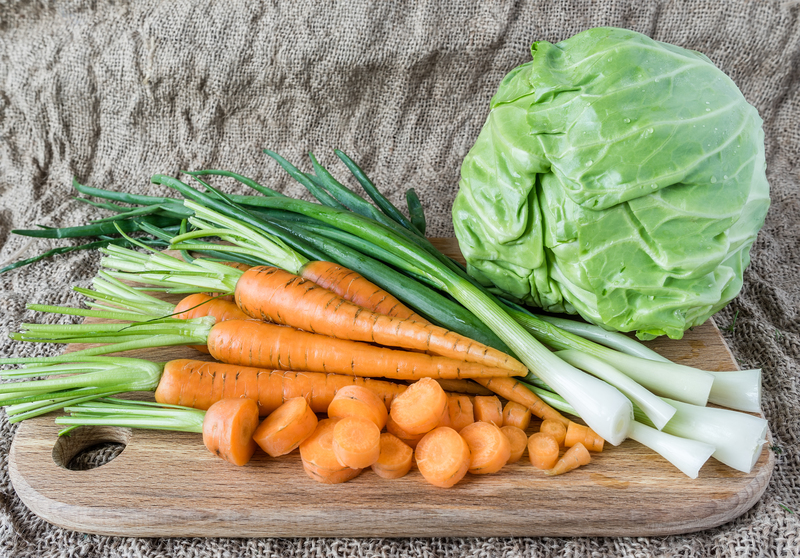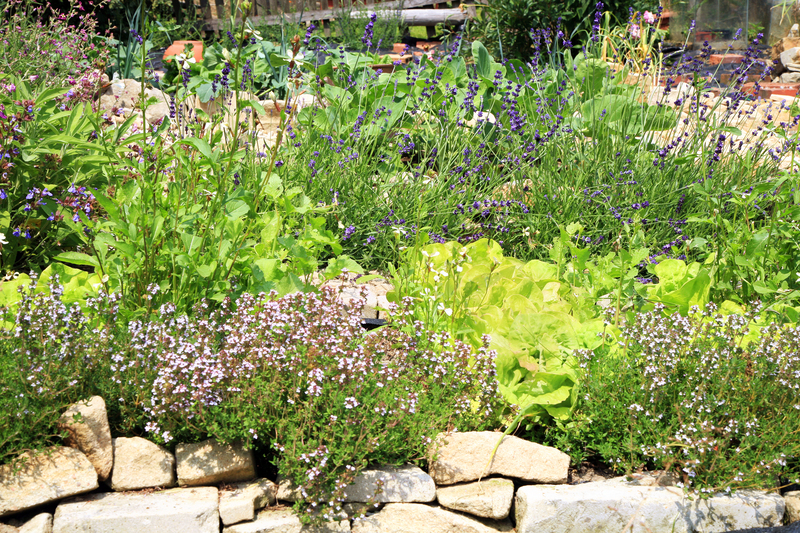Unleash Your Garden's Potential with 5 Economical Tips
Posted on 05/06/2025
Unleash Your Garden's Potential with 5 Economical Tips
Would you like a lush, inviting garden without overspending? Many homeowners and garden enthusiasts dream of maximizing their outdoor spaces, but cost often poses a significant barrier. Fortunately, you can transform your landscape and boost your garden's potential without emptying your wallet! This comprehensive guide highlights the top five affordable gardening tips designed to help you create a vibrant, thriving garden--no matter the size of your budget.
Why Economical Gardening Matters
The journey to an impressive garden doesn't have to break the bank. Economical gardening is about utilizing creativity, resourcefulness, and nature-friendly methods to unlock your garden's true potential. By adopting budget-friendly strategies, you'll not only save money but also promote sustainability and reduce waste. In this article, we'll reveal practical, proven methods to give you the lush, fruitful garden you've always wanted--at a fraction of the cost.

1. Repurpose and Reuse: Creative Approaches to Garden Design
Make the Most of What You Already Have
Unlock hidden potential within your garden by reimagining ordinary household items and existing garden materials. Repurposing doesn't just save money; it adds unique character and personal flair to your outdoor space.
- Pallet Planters: Used wooden pallets can be transformed into attractive vertical gardens perfect for herbs, succulents, or flowers.
- Old Containers: Buckets, teapots, tins, and even worn-out shoes can become quirky planters that stand out in your garden.
- Garden Pathways: Salvaged bricks, stones, or old tiles can be arranged creatively to build charming footpaths or accent features.
- DIY Composter: Convert a large container or bin into a simple home composting system (more on this below!).
- Furniture Reuse: Give new life to weathered benches or tables with a fresh coat of paint and use them as eye-catching focal points or potting stations.
Tip: Always ensure repurposed materials are safe for plant use and free of harmful chemicals!
Benefits of Repurposing in the Garden
- Cost-effective: Using what you already have reduces expenses.
- Eco-friendly: Less waste means a greener planet.
- Customizable: Repurposed items add a personal, creative touch that can't be bought at the store.
2. Grow from Seeds: The Economy of Starting Small
Seed Starters for Any Budget
One of the best ways to maximize your garden potential without overspending is to grow your plants from seeds instead of purchasing full-grown plants. Seeds are vastly more affordable and provide a greater variety of choices, from heirloom vegetables to rare ornamental flowers.
- Harvest Your Own Seeds: Save seeds from healthy plants at the end of the season. Store them in labeled envelopes for next year's planting.
- Community Seed Swaps: Swap and share seeds with local gardeners or through online groups to increase your plant variety while spending little or nothing.
- DIY Seed Starters: Egg cartons, toilet paper rolls, and yogurt cups make fantastic, biodegradable seedling pots.
Start with easy-to-grow varieties such as lettuce, beans, radishes, sunflowers, and zinnias. These options provide quick results and build confidence for novice gardeners.
Top Reasons to Start from Seed:
- Affordability: Seeds are significantly less expensive than nursery plants.
- Diversity: Grow unique varieties not commonly sold in stores.
- Control: Know exactly how your plants are grown, from soil to harvest.
3. Smart Watering and Soil Practices for Budget-Friendly Gardening
Harvest Rainwater to Save Big
Water is essential, but it doesn't have to be expensive. Harvesting rainwater is a sustainable way to reduce your water usage and keep your garden lush during dry spells.
- Install Rain Barrels: Place a barrel beneath your downspouts to collect free water for irrigation.
- Reuse Greywater: Collect water from rinsing produce or leftover from pet dishes for garden use (ensure no harmful chemicals are present).
Mulching: The Secret to Healthy, Low-Cost Soil
Mulching is one of the smartest investments for any economical garden. By covering soil with organic matter such as grass clippings, shredded leaves, or newspaper, you will:
- Reduce evaporation: Keep soil moist, lowering the need for frequent watering.
- Suppress weeds: Mulch blocks weed growth, reducing labor.
- Enrich soil: As organic mulches break down, they boost soil health and fertility.
DIY mulch sources include: lawn clippings, autumn leaves, shredded newspaper, and even untreated wood chips--so you can mulch without spending a dime!
4. Compost: Turn Kitchen and Garden Waste into Garden Gold
Every garden can benefit from homemade compost, and it's absolutely free if you use your household and yard waste! Composting diverts organic matter from landfills and provides your plants with a rich, natural fertilizer. It's perhaps the best way to unleash your garden's full potential on a budget.
How to Start Composting at Home
- Choose a Compost Bin: Use a repurposed bin, make a simple wire enclosure, or compost in an unused corner of your yard.
- Add Materials: Mix green materials (fruit scraps, vegetable peels, coffee grounds, grass clippings) and brown materials (dry leaves, cardboard, newspaper, small branches).
- Stir and Wait: Turn your pile every couple of weeks to aerate it. In a few months, you'll have crumbly, sweet-smelling compost ready to feed your garden!
What Not to Compost
- Dairy, meat, or oily foods (they attract pests)
- Diseased plants
- Pet waste from carnivorous animals
- Weeds gone to seed
Pro-tip: Apply finished compost in spring and fall for the best results. Your plants will thank you with healthy growth and abundant blooms!
5. Maximize Space: Vertical and Companion Planting Techniques
Go Vertical: Grow More in Less Space
Even the smallest garden can be productive if you think vertically! Vertical gardening allows you to multiply your growing area while reducing maintenance and increasing visual interest.
- DIY Trellises & Supports: Build vertical structures from bamboo stakes, wire panels, or reclaimed wood.
- Hanging Containers: Use old baskets, pots, or even recycled bottles to create hanging gardens for strawberries, herbs, or flowers.
- Wall Planters: Attach planters to fences or walls for climbing plants and cascading blossoms.
Embrace Companion Planting for Healthier, More Productive Gardens
Companion planting is a time-tested technique that pairs plants to boost growth, attract beneficial insects, and deter pests--all while saving space and money!
- Three Sisters Method: Plant corn, beans, and squash together. Corn provides a trellis for beans, beans enrich the soil, and squash shades the ground, reducing weeds.
- Tomatoes & Basil: This flavorful duo boosts each other's growth and repels common pests.
- Marigolds with Veggies: Marigolds deter nematodes and aphids, making them every vegetable patch's best friend.
Tip: Plan your garden layout in advance to make the most out of every square inch, combining climbers, ground covers, and compact crops!
Bonus: Harness Local Resources and Community Wisdom
Your neighborhood and local community are rich resources for cost-effective gardening solutions. Consider these ideas:
- Join a Garden Club: Learn, swap plants and seeds, and share tools with fellow gardeners.
- Check Social Media & Online Marketplaces: Find free or low-cost tools, plants, compost, and other essentials.
- Participate in Workshops: Many community centers offer free gardening workshops and talks.
Sharing knowledge not only saves money but also connects you with passionate gardeners who can offer advice, cuttings, and more!

Final Thoughts: Transform Your Garden Without Breaking the Bank
Ready to unleash your garden's potential? With these five economical gardening tips--repurposing materials, growing from seed, smart watering and soil practices, composting, and maximizing space--you can create a lush, productive, and visually stunning garden on any budget. Every garden has hidden potential just waiting to be unlocked by resourcefulness and creativity.
Remember: Gardening is as much about the journey as the outcome. Embrace each step, experiment with new ideas, and enjoy the satisfaction of cultivating a thriving little paradise--no matter your limitations!
Frequently Asked Questions: Economical Ways to Boost Your Garden
- Is it really possible to start a garden without spending much?
Absolutely! By making use of seeds, recycled materials, composting, and sharing resources, you can start a beautiful garden with minimal investment. - What's the best first step for beginners?
Begin small! Try growing herbs or easy vegetables in containers, and gradually expand as you gain confidence and experience. - How do I keep garden costs low all year?
Plan your garden ahead, save seeds, make your own compost, and repurpose materials whenever possible. Join local gardening groups for additional support.
Share Your Garden Success!
We'd love to hear about your affordable gardening adventures. Comment below with your best tips and stories, and inspire fellow gardeners to unleash their gardens' potential--economically and creatively!
Latest Posts
Beginner's Guide to Gardening with 9 Critical Tips
Sustainable Gardening: Cultivating Hope Against Climate Change
Prepare Your Garden to Withstand Severe Weather Impact
Creating Peace: Innovative Zen Garden Ideas for Quiet Retreats

